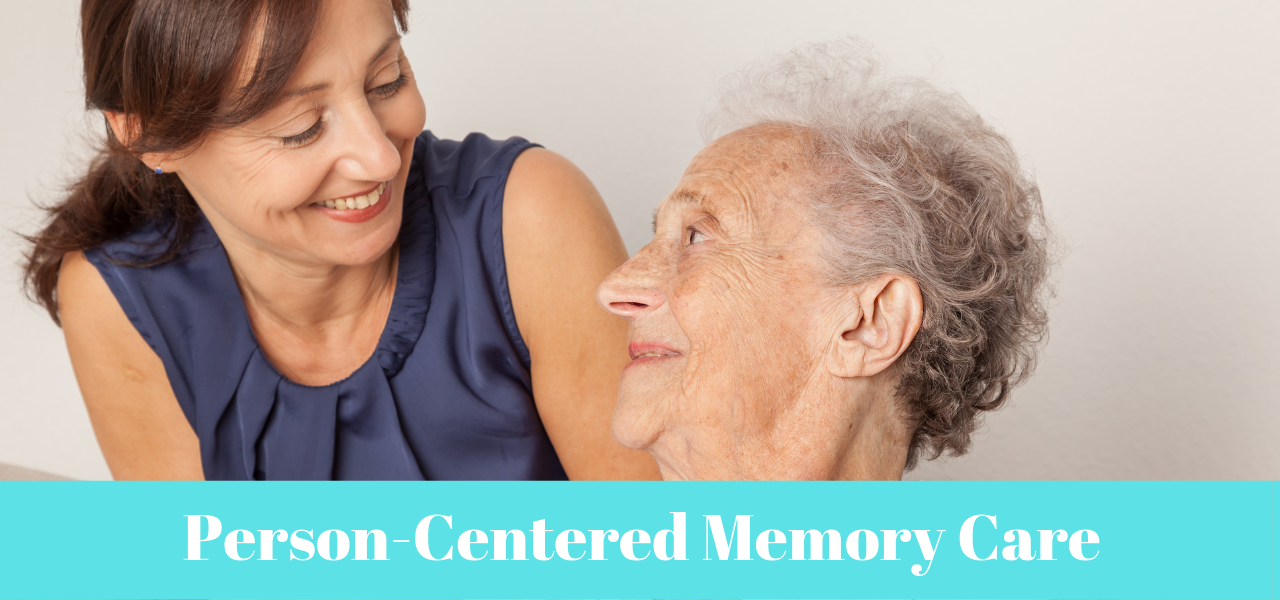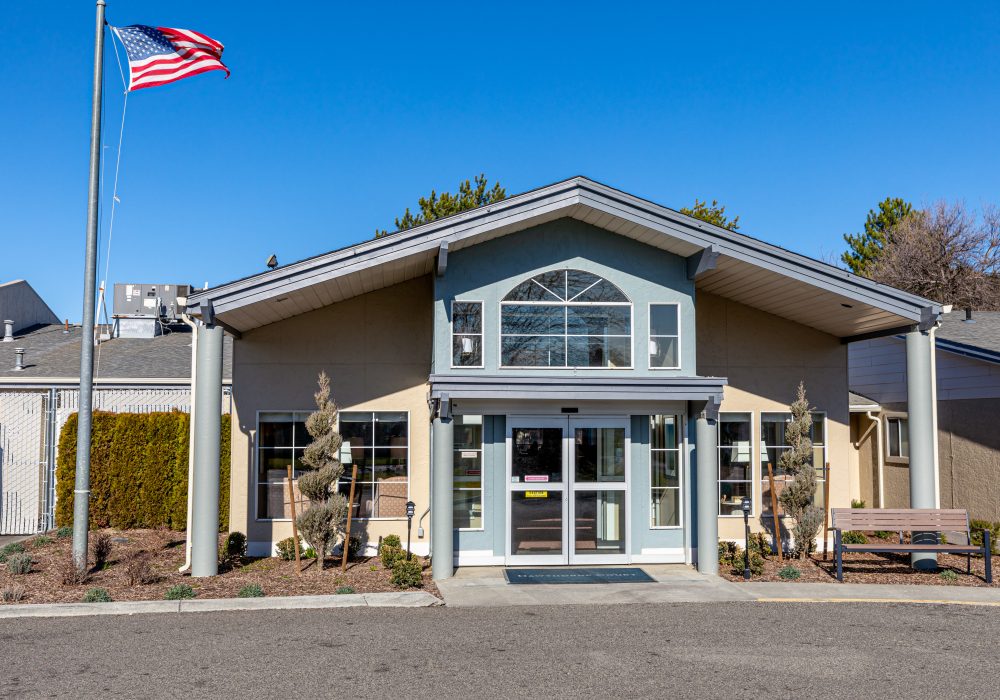
Many memory care communities boast a “person-centered” approach to care. But, what does that mean? What does that look like in the everyday care of a person with dementia? Person-centered care is all about the person living with the disease, and not the disease itself. Focusing on personal preferences, life history, routines, and other individual attributes, person-centered care has been shown to have a positive effect on people with dementia and their caregivers.
Learn more about the benefits of a person-centered approach to care.
What is Person-Centered Care?
Thought to be developed in the late 1980s at the University of Bradford by professor Thomas Kitwood, person-centered care is an approach to caregiving that emphasizes the preferences of each person, instead of the disease, its symptoms, challenges, and lost abilities.
Simply put, rather than seeing a dementia patient, person-centered care sees a person who has dementia. It allows the person with the disease to communicate his or her needs and then shapes caregiving around those needs. It encourages and empowers people with dementia, realizing their personal beliefs, life experiences, life stories, and relationships all play a vital role in overall health and wellness.
Experience Leisure Care Senior Living
The Alzheimer’s Association notes the key points of person-centered care as:
- Treating the person with dignity and respect
- Understanding a person’s history, lifestyle, culture, and preferences
- Considering the viewpoint of the person with dementia
- Providing opportunities for the person with dementia to engage with others and cultivate relationships
- Giving the opportunity to try new things and participate in fun activities
A community that practices person-centered care will actively listen to residents, live in their ‘reality’ even as dementia progresses, and encourage residents to have an active role in community life.
Benefits of Person-Centered Care
Person-centered care is a kind and compassionate approach to care with proven benefits. It allows a comprehensive and holistic caregiving experience that values the individual. Research has suggested that benefits of person-centered care include:
- A stronger relationship between caregiver and patient, allowing increased communication and better care
- The ability to meet social and emotional needs, not just physical ones
- A reduction in behavioral symptoms of dementia, like anxiety and agitation
- A lower risk of depression, social isolation, loneliness, helplessness, and boredom
- Better sleep patterns
- A reduction in the use of psychotropic medication
Person-centered care also benefits caregivers. A 2015 study suggests that providing person-centered care reduces stress, burnout, and job dissatisfaction. This could ultimately lead to reduced staff turnover and lead to more continuous and better quality care.
Opal is Leisure Care’s innovative memory care that provides holistic, person-centered memory care services for people living with Alzheimer’s and related forms of dementia. We work closely with individuals with dementia and their families to develop a personalized care plan, called a life story ,so that we understand personal preferences, culture, life history and any other aspects that may impact care. Opal includes a gentle daily structure that is flexible and includes active and engaging opportunities that are meaningful and promote a strong sense of purpose.
Find a Leisure Care Community
Better with age, exceptional with us! Come and see how Leisure Care communities are helping seniors rediscover (and sometimes reinvent) themselves.








